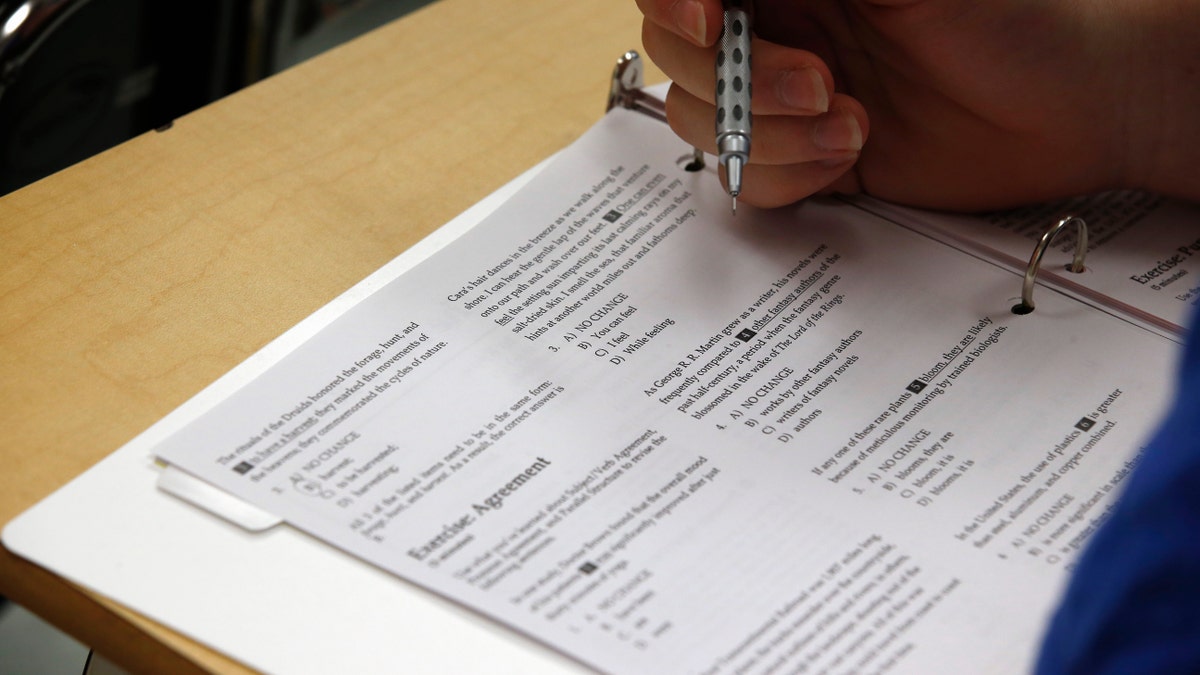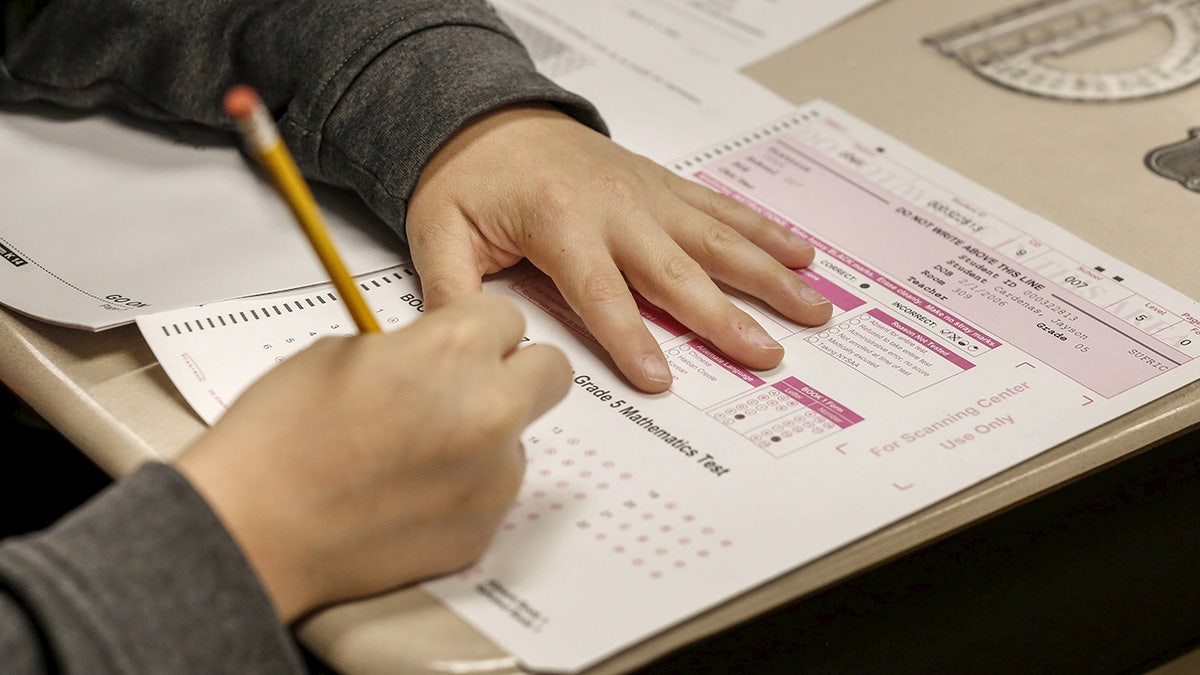The SAT and ACT put every student at a disadvantage
New test replacing SAT and ACT in Florida
New College of Florida interim president Richard Corcoran discusses why the DeSantis-backed public liberal arts school will now accept the Classic Learning Test.
After making standardized tests optional for admissions during the pandemic, elite universities like Dartmouth, MIT, Yale and, most recently, Brown have recognized their error and reimposed a testing requirement for all applicants.
Originally, these schools caved to critics who derided the SAT and ACT as discriminatory, inequitable and even racist. The critics were always wrong to blame demographic differences in test scores on racial animus, but they were right about something:
The SAT and ACT do put students at a disadvantage – all students.

The focus on disparities makes us blind to a more vital question: Do these tests measure what’s important? (AP Photo/Alex Brandon)
Debates about testing often focus on how different socioeconomic or racial groups compare within the system, questioning why wealthier students get better SAT scores than poorer or if the ACT favors Whites and Asians over Blacks and Hispanics.
This focus on disparities makes us blind to a much more vital question: Do these tests even measure what’s important?
SAT DEFENDED FROM ‘MISGUIDED’ ATTACKS AS TEST INCREASINGLY BECOMES OPTIONAL FOR STUDENTS
Though the SAT and ACT clearly have a political bias, overall, they are designed to be utterly boring and neutral. Test writers purposefully choose uninspiring, inconsequential texts that few if any test-takers will have previously read in a vain attempt to ensure no type of student or schooling method receives an unfair advantage.

Our young people spend years acquiring skills without substance to attain scores with little meaning. (John Paraskevas/Newsday RM via Getty Images)
This bid for neutrality clearly hasn’t worked. But much more significant is that teachers and students train for the test, meaning our most intellectually promising young people spend years of their lives focused on acquiring skills without substance to attain scores with little meaning.
Does it matter, for example, that reading comprehension scores vary among demographic groups if the readings students are trained to comprehend are as dry and pointless as the marketing text on the side of a shampoo bottle?
Students don’t attend school and universities don’t exist merely so kids can study any random thing. The goal is to help young people become someone – a person of compassion and depth, a critical thinker aware of the history and philosophies that shape the world around her, and someone who knows herself well enough to go out and change that world for the better.
THE TEST THAT WILL SPARK A COUNTERREVOLUTION IN EDUCATION

Universities have been reminded that some form of standardized testing is necessary. (iStock)
This type of person isn’t formed simply by acquiring skills like reading or writing, but by engaging with thinkers, authors and intellectual revolutionaries from times gone by to today. Ultimately, they’re formed by a classic education.
Universities regularly proclaim their desire to shape such people, promoting themselves as incubators of "global citizens," "future leaders" and "seekers of truth." Yet these same universities force applicants to spend countless hours studying without gaining knowledge, molding their minds to contentless exams.
The answer is not to drop testing requirements. Despite worries about disparate impact, universities are quickly realizing that some form of standardized testing is necessary to adequately compare applicants and give a fair shot to students with fewer academic resources or access to extracurricular activities.

Our current testing regime perpetuatwa an education system that is inequitable and unenlightening. (iStock)
CLICK HERE FOR MORE FOX NEWS OPINION
But our current testing regime is self-defeating, perpetuating an education system that is both inequitable and unenlightening.
As more schools consider how to reimpose their testing requirements, they would do well to remember: The problem isn’t standardized testing, it’s the standards.
Jeremy Tate is the founder and CEO of the Classic Learning Test, a humanities-focused alternative to the SAT and ACT.
